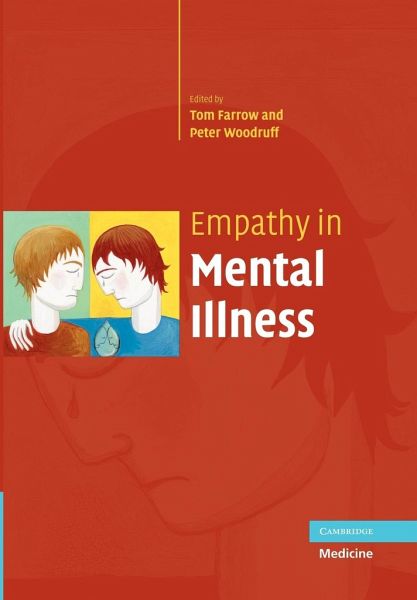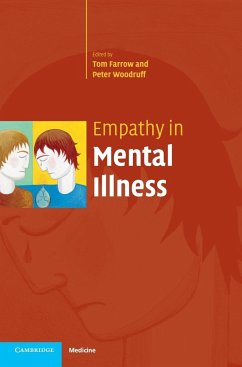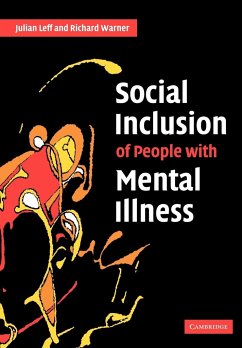
Empathy in Mental Illness
Versandkostenfrei!
Versandfertig in 1-2 Wochen
108,99 €
inkl. MwSt.

PAYBACK Punkte
54 °P sammeln!
The lack of ability to emphathize is central to many psychiatric conditions. Empathy is affected by neurodevelopment, brain pathology and psychiatric illness. Empathy is both a state and a trait characteristic. Empathy is measurable by neuropsychological assessment and neuroimaging techniques. This book, first published in 2007, specifically focuses on the role of empathy in mental illness. It starts with the clinical psychiatric perspective and covers empathy in the context of mental illness, adult health, developmental course, and explanatory models. Psychiatrists, psychotherapists and menta...
The lack of ability to emphathize is central to many psychiatric conditions. Empathy is affected by neurodevelopment, brain pathology and psychiatric illness. Empathy is both a state and a trait characteristic. Empathy is measurable by neuropsychological assessment and neuroimaging techniques. This book, first published in 2007, specifically focuses on the role of empathy in mental illness. It starts with the clinical psychiatric perspective and covers empathy in the context of mental illness, adult health, developmental course, and explanatory models. Psychiatrists, psychotherapists and mental heath professionals will find this a very useful reference for their work.














